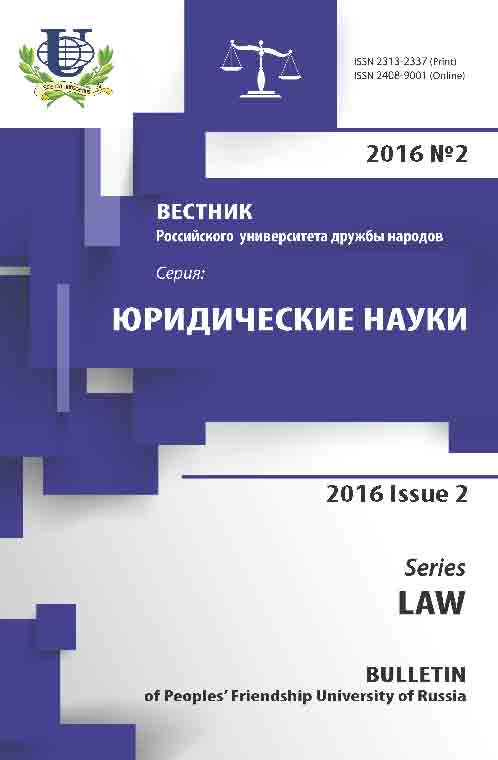Judge as a new sovereign: voluntaristic interpretation theory of M. Troper
- Authors: Timoshina E.V.1
-
Affiliations:
- Saint Petersburg State University
- Issue: No 2 (2016)
- Pages: 50-61
- Section: Articles
- URL: https://journals.rudn.ru/law/article/view/14793
Cite item
Full Text
Abstract
The paper presents, that realization of rule of law state concept, which supposed judge to be independent neutral instance, has had sudden side effect, unexpected costs. Author considers, that it is due to tendencies of judicial power sovereignization, being discovered in constitutional justice sphere, that lead to radical politicization of judgment, especially in competition of human rights situations. The process of judicial power sovereignization and politicization of judgment is supported by judicial activity ideology, which constructs new sovereign - the judge, and tries to put it in place of eliminated sovereign of classical (Austin’s) juridical positivism and to assign him all attributes of the sovereign of classical political doctrine. The aim of this process is to substantiate changes to constitution, which are invented beyond provided procedures. Author considers, that realistic (voluntaristic) interpretation theory of modern French constitutionalist M. Troper supposes doctrinal substantiation for constitutional judgement sovereignization tendency. On the basis of Troper’s judicial authority construction author comes to a conclusion, that this construction includes main features of the political sovereign: 1) constitutional norms are stated by will expression act of constitutional supervision authority; 2) by realizing constitutional founding authority, it determines its own powers independently; 3) the decision of constitutional interpretation subject holds legal validity irrespective to its normative justification and contents; 4) constitutional justice authority is not a subject of legal responsibility. Author concludes that Troper’s realistic theory of interpretation, representing the legal-positivist tradition, attempts the return of the sovereign in modern theoretical and legal discourse, disguising his discredited image in «white clothes» the main attribute of the rule of law - independent judiciary. However, the people is recognized as the subject of sovereignty in the modern rule of law state, therefore, believes the author, the arbitrary establishment of the constitution by the constitutional supervision authority, arrogated to itself the constituent power, is not an act of interpretation, as suggested by Troper, but an act of usurpation of sovereignty.
About the authors
Elena Vladimirovna Timoshina
Saint Petersburg State University
Email: e.timoshina@spbu.ru
7/9, Universitetskaya embankment, Saint Petersburg, Russia, 199034
References
















